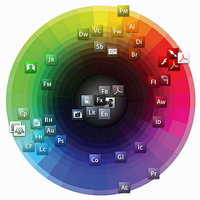Adobe's CD3 'spying scandal' defused


The origin of the kerfuffle was Lies, Lies and Adobe Spies posted on Wednesday. A number of other sites ran with it.
Adobe blogger John Nack on Friday responded with some real information. He said that the company tracks things via Omniture in its applications:
•The welcome screens (these things) in some Adobe apps include a Flash SWF file that loads current news, special offers, etc. These requests hit Adobe.com servers and are logged, like regular browser-based traffic, by Omniture. •Adobe Bridge embeds both the Opera browser and the Flash Player, both of which can be used to load Adobe-hosted content. These requests are also logged. •Adobe apps can call various online resources (online help, user forums, etc.), and those requests are logged.
Nack admits that there are plenty of good privacy and security reasons for users to feel paranoid about applications sniffing data. However, he then offers a number of good developer reasons why a desktop application might want to be calling home.
I'm a huge advocate of improving the desktop experience through online connectivity. There are lots of details to get right here as we work to find the right balance between privacy & connectedness. Let's absolutely have those conversations--but let's not drown them out with a bunch of shrill, irresponsible FUD. (That would be a disgrace.)
Nack is on the mark. To improve products, we may want developers to have the best information from the most users and in real-time. Of course, we hope that developers will look at the right stuff.
Still, developers must be transparent about this process, even if that knowledge distorts the results (like Schrödinger's cat). Users should have plenty of information about the data that will be collected and when and why, and then be opting into the tracking program.
Even Nack admits this point.
As I say, as the line further blurs between the desktop & online experiences, Adobe & all companies will need to do a better job communicating & giving users choices.